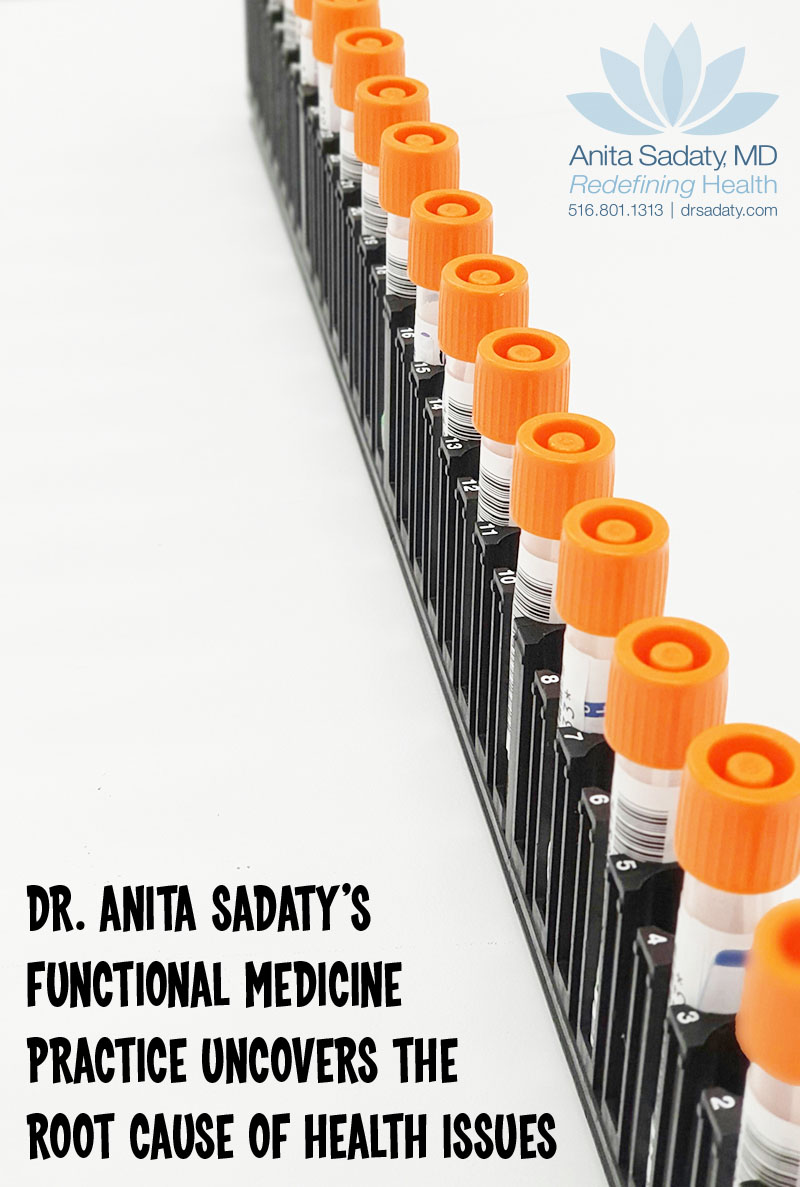
Why Do I Check Homocysteine Levels As A Functional Medicine Doctor?
…and why should you care about it?
As many of you know who have gone through my functional medicine program, I order a pretty sizable amount of blood work on all of my patients. Enough so that the phlebotomists at the lab see my name on the blood work prescription and they start sweating and possibly cursing.
I check over 50 biomarkers of health to get the broadest and most complete picture of what is going right and not so right.
One of the less glamorous yet highly valuable markers is homocysteine.
Homocysteine (HC) is an amino acid produced during the metabolism of methionine, another amino acid in the body, Its levels are tightly regulated. When this regulation is disrupted, HC levels rise and can lead to problems.
What’s the Normal Homocysteine Range?
➔ Homocysteine levels are typically15 micromoles per liter. Levels above 11 are considered elevated by most conventional labs with severe cases (e.g., >50) often linked to genetic disorders like homocystinuria. As a functional medicine doctor, I look for levels between 6-7 as an optimal range.
Health Implications:
High homocysteine is associated with an increased risk of cardiovascular disease, higher risk of stroke, dementia, and pregnancy complications, though it’s not always clear if it’s a cause or a marker. But this is why this marker is so valuable – it often represents a correctable imbalance that may reduce your risk for cardiovascular consequences.
What Causes High Homocysteine?
This can be caused by a combination of genetic, nutritional, medical, and lifestyle factors.
1. Nutritional Deficiencies
- Vitamin B6 (Pyridoxine), B12, or Folate Deficiency: These vitamins are essential cofactors in homocysteine metabolism. They help convert homocysteine back to methionine or break it down into cysteine. Low levels of these vitamins impair this process, leading to homocysteine buildup.
- Common causes of deficiency include poor diet, malabsorption (e.g., celiac disease, inflammatory bowel disease), or increased demand (e.g., pregnancy).
- Low Dietary Intake: Diets lacking in B-vitamin-rich foods (e.g., leafy greens, eggs, fish, fortified cereals) can contribute to deficiencies.
2. Genetic Factors
- MTHFR Gene Mutations: Mutations in the MTHFR gene (e.g., C677T or A1298C variants) reduce the activity of the enzyme methylenetetrahydrofolate reductase, which is critical for folate metabolism. This impairs homocysteine conversion to methionine, raising levels.
- Homozygous mutations (inheriting two copies of the defective gene) are more likely to cause significant elevations.
- Other rare genetic disorders, like cystathionine beta-synthase (CBS) deficiency, can also lead to severely elevated homocysteine (homocystinuria).

3. Medical Conditions
- Kidney Disease: Impaired kidney function reduces homocysteine clearance, leading to higher blood levels.
- Hypothyroidism: Low thyroid hormone levels can slow homocysteine metabolism.
- Psoriasis and Other Inflammatory Conditions: Chronic inflammation may disrupt homocysteine regulation.
- Diabetes: Poorly controlled diabetes can affect B-vitamin metabolism and kidney function, contributing to elevated levels.
- Cancer: Certain cancers, like leukemia, can increase homocysteine due to altered metabolism or treatment effects.
- Pernicious Anemia: This autoimmune condition impairs vitamin B12 absorption, leading to homocysteine accumulation.
4. Medications and Treatments
- Methotrexate: Used for cancer or autoimmune diseases, it interferes with folate metabolism.
- Anticonvulsants: Drugs like phenytoin or carbamazepine can reduce folate or B6 levels.
- Metformin: Commonly used for diabetes, it may lower B12 absorption.
- Proton Pump Inhibitors (PPIs): Long-term use can reduce B12 absorption by decreasing stomach acid.
- Cholestyramine or Niacin: These cholesterol-lowering drugs can affect folate or homocysteine metabolism.
5. Lifestyle Factors
- Excessive Alcohol Consumption: Alcohol interferes with folate and B12 absorption and metabolism.
- Smoking: Smoking may deplete B vitamins and increase oxidative stress, affecting homocysteine levels.
- High Coffee Intake: Excessive coffee consumption has been associated with modestly higher homocysteine levels, possibly due to effects on B-vitamin metabolism.
- Sedentary Lifestyle: Lack of physical activity may indirectly influence homocysteine by affecting overall metabolism.
6. Demographic and Physiological Factors
- Age: Homocysteine levels tend to rise with age due to declining kidney function or reduced B-vitamin absorption.
- Sex: Men often have slightly higher levels than premenopausal women, though levels may equalize post-menopause.
- Pregnancy: While pregnancy can lower homocysteine due to increased demand, deficiencies in B vitamins during pregnancy can elevate it.
7. Other Causes
- High Methionine Intake: Diets very high in methionine (found in meat, eggs, and dairy) can increase homocysteine if B-vitamin levels are inadequate to process it.
- Stress or Illness: Acute or chronic stress may disrupt metabolic pathways, indirectly raising homocysteine.
Management of High Homocysteine
It is critical to identify and address the underlying causes of a high serum result, It may be as simple as supplementing with B6, B12, or folate, or improving diet, or identifying and managing other more complicated related medical conditions. Arm yourself with the information!!
The Bottom Line
Take advantage of this simple often overlooked blood test to give you the insight you may need to get your health to the next level.
Please Share the Health if you liked what you read!!!
For more information about my wellness programs and my practice, check out my website drsadaty.com. Hey Look! You are already here…
Ready for the legal disclaimer? Information offered here is for educational purposes only and does not constitute medical advice. As with any health recommendations, please contact your doctor to be sure any changes you wish to consider are safe for you!
Mental Health Hormones Doctor Anita Sadaty Share The Health board certified gynecologist New York Functional Medicine NY Women’s Wellness